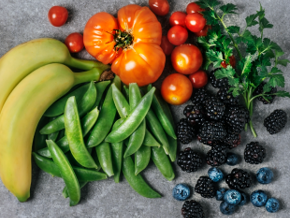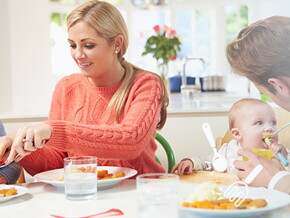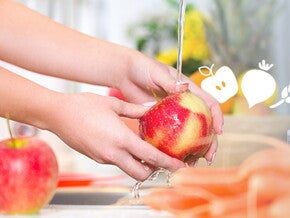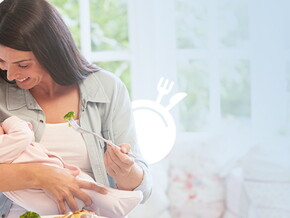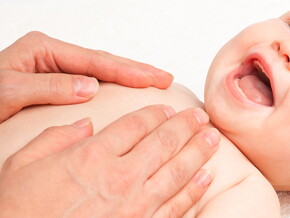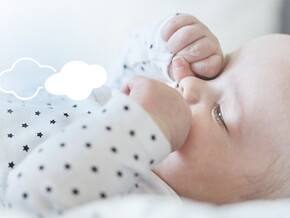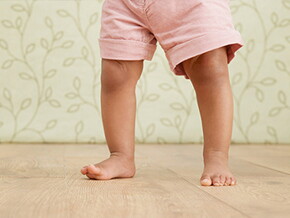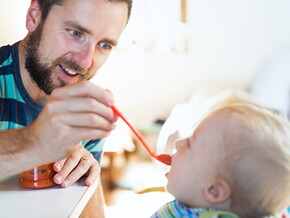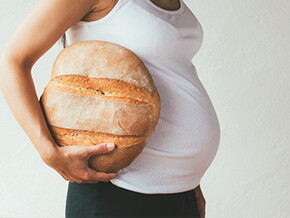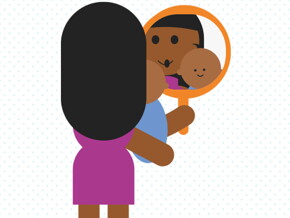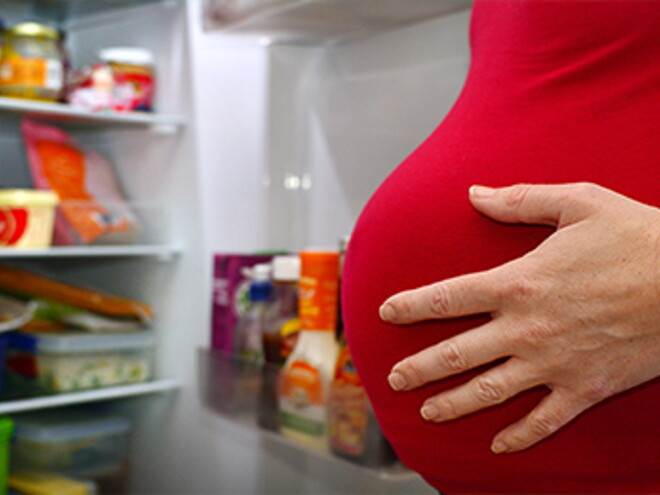
Foods prohibited during pregnancy
By now, it might have been well drilled into you that when you are pregnant, you must pay special attention to your diet. Some infections transmitted by foods, such as listeriosis and toxoplasmosis, may be serious for you and baby. But don't panic! Maintain good dietary habits and food hygiene, and you will definitely minimise your risks.
To avoid any risk of listeriosis
This illness is due to a bacterium, listeria - which is present in raw meat, seafood, fruit, vegetables and unpasteurised cheese. Everyone can be affected by listeriosis. In healthy people, this is a benign infection, but in pregnant women, the risks are high: miscarriage, premature labour, respiratory distress, etc.
The symptoms of listeriosis may remain unnoticed or you might develop a cold and a slight fever. If this is the case, talk to your doctor about it, who may prescribe a blood test to confirm the presence of listeria. In the event of a positive result, antibiotic treatment will be prescribed.
To prevent this, it is essential to adopt good eating habits and good food hygiene:
- Avoid all raw foods: raw fish (sushi, sashimi, etc.), raw seafood, raw meat (carpaccio, steak tartare, etc.), or raw eggs and also dairy products made with unpasteurised milk (opt for pasteurised cheese).
- Avoid all cold meats (potted meat, liver and other patés) and opt for vacuum-packed rather than sliced ham.
- Cook your meat well before eating it.
- Wash your fruit and vegetables before preparing them. Our recommendation: a tablespoon of vinegar in a kitchen sink filled with water. Don't let the fruit soak, though, to make sure that it retains its minerals and vitamins.
- Check the expiry dates of foods.
- Avoid eating leftovers or at least reheat them.
- Wash your hands before preparing meals and sitting down to table.
- Ensure that any place where you store food remains clean: regularly clean the refrigerator and cupboards.
To avoid any risk of toxoplasmosis
This illness is caused by a parasite transmitted by cats. Also known as "litter disease" it is usually not serious except in pregnant women who have not been immunised. This can lead to foetal deformations.
The risk of getting toxoplasmosis when you are pregnant is very low. Apart from following strictly on good hygienic practices and eating habits, you should avoid handling or adopting stray cats. In addition, avoid touching cat faeces in cat litter or soil. Always wear gloves when changing a cat’s litter tray and wash hands thoroughly afterwards.
To know whether you have been immunised against toxoplasmosis, your doctor will prescribe a blood test at the beginning of the pregnancy.
For food hygiene, the precautions are the same as for listeriosis: wash fruit and vegetables well in vinegar, avoid all raw and unpasteurised milk products, cook your meat well, etc.
Other important hygiene rules
Do take note on these dietary precautions:
- Check the expiry dates of foods.
- Avoid eating leftovers or at least reheat them.
- Wash your hands before preparing meals and sitting down to table.
- Ensure that any place where you store food remains clean: regularly clean the refrigerator and cupboards.
In addition to the above dietary precautions, remember that alcohol is not encouraged during your pregnancy. Also limit your consumption of stimulating beverages such as coffee and other drinks with a high caffeine content, carbonated drinks or tea. Opt for decaffeinated coffee and herbal teas such as chamomile.
